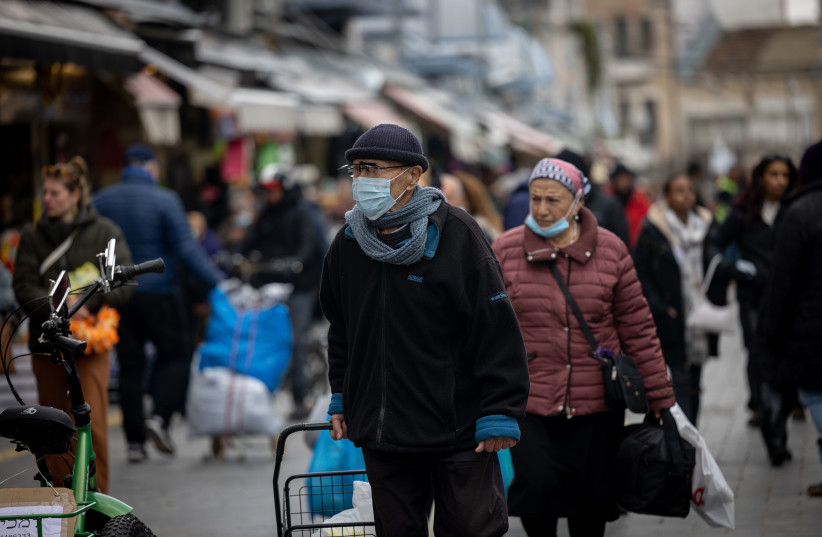We talk a lot about returning these days. Returning to shul, returning to exposed faces, returning to theater or dinners out or movies. Returning to family gatherings and airplanes and teaching in person.
But there’s not a word in English for what we are actually doing. We’re not returning. We’re remaking a future. A future without the parent we lost, the job we left, the sense of normalcy that made the world predictable. Over the past two years, we have hoped and despaired, adapted and adapted – and adapted some more. What’s coming next? Can you trust the future?
Because I am a psychologist, I think a lot about wellness and healing. Much of the time, we hope that healing will take us back to a previous state. When I get over this cold, I’ll be as I was before. When my depression lifts, I will feel “normal.” When the broken bone heals, I’ll be able to run and play as I always have.
Many cancer patients have a different attitude. They are always people who have had cancer. Their vision of themselves has changed, moved. They don’t heal to who they were, but to their future – now unsure.
When I imagine an “after-COVID,” I feel much more like a cancer patient. The world seems so much more unsure to me now. Between antisemitism, our disrespectful political discourse, and these two years of ongoing disruption, I wonder if I will ever really feel “after-COVID.”

What does the future hold? I’ve been talking about healing forward rather than healing backward. I think we need to look towards our shared and individual futures with intention. What have I learned? Who do I want to be? How can I act to improve the world? Can I be more tolerant, more thoughtful, more kind?
Our institutions also need to heal forward. Both the Reform and Orthodox movements have been rocked by scandal and misbehavior. How do we protect our most vulnerable? Who are we if we don’t do so? It is clear that the modus operandi that has prevailed in some arenas of institutional Judaism cared more for those in power than those in need. How do we reset?
We reset by remembering our calling. By being a light unto the nations, a people who has survived over and over again – by adapting.
It’s time to consider what healing forward will mean for us now. It must mean that we support our families, that we attend to the very real mental health struggles facing our teens. Can we double the staff at Jewish Family Service agencies, Hillels? Can we expand our food banks, offer more services? We need to.
Can we find ways to assist our clergy, whether by creating programs they can easily adapt to their settings or by honoring their need for sabbaticals right now? I hear clergy talking about feeling like hired hands. If we don’t care for them, we will lose them. The Conservative Movement is already facing a shortage of rabbis.
There is much work to be done. Most of it will cost money. We need to beef up our social service agencies, create opportunities for Jewish professionals to recenter themselves, strengthen our outreach to those who are suffering. We need to adapt our educational programs to support the deep psychological needs we’re seeing in our youth and their parents.
We survive by healing forward, by envisioning what we can become. Our eyes need to turn towards the future.
The writer, who holds a Ph.D., is a retired psychologist and an adjunct lecturer at Hebrew Union College-Jewish Institute of Religion. She leads seminars and webinars for clergy of multiple faiths, and Jewish professionals and parents on topics including trauma, post-traumatic growth, identity and character, and happiness.
